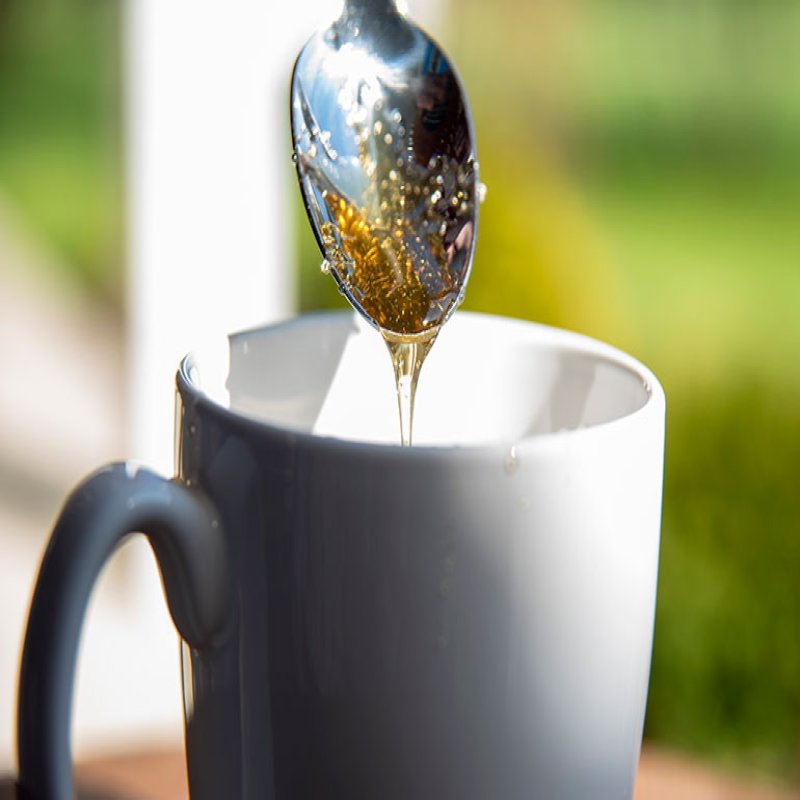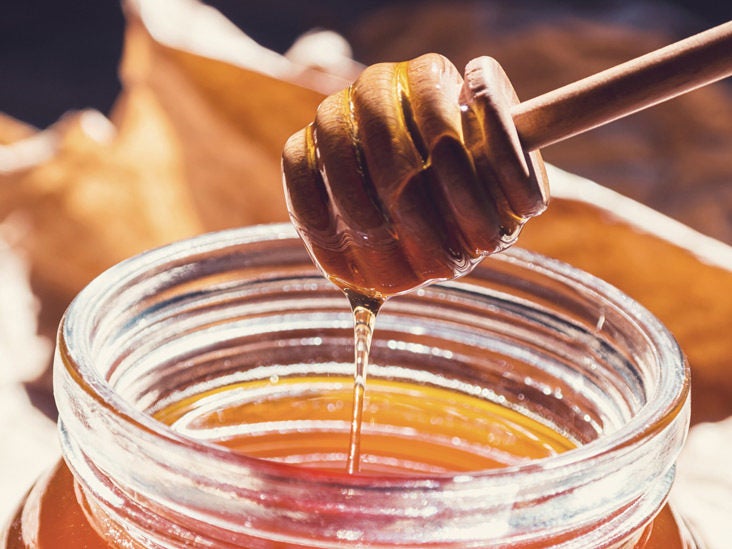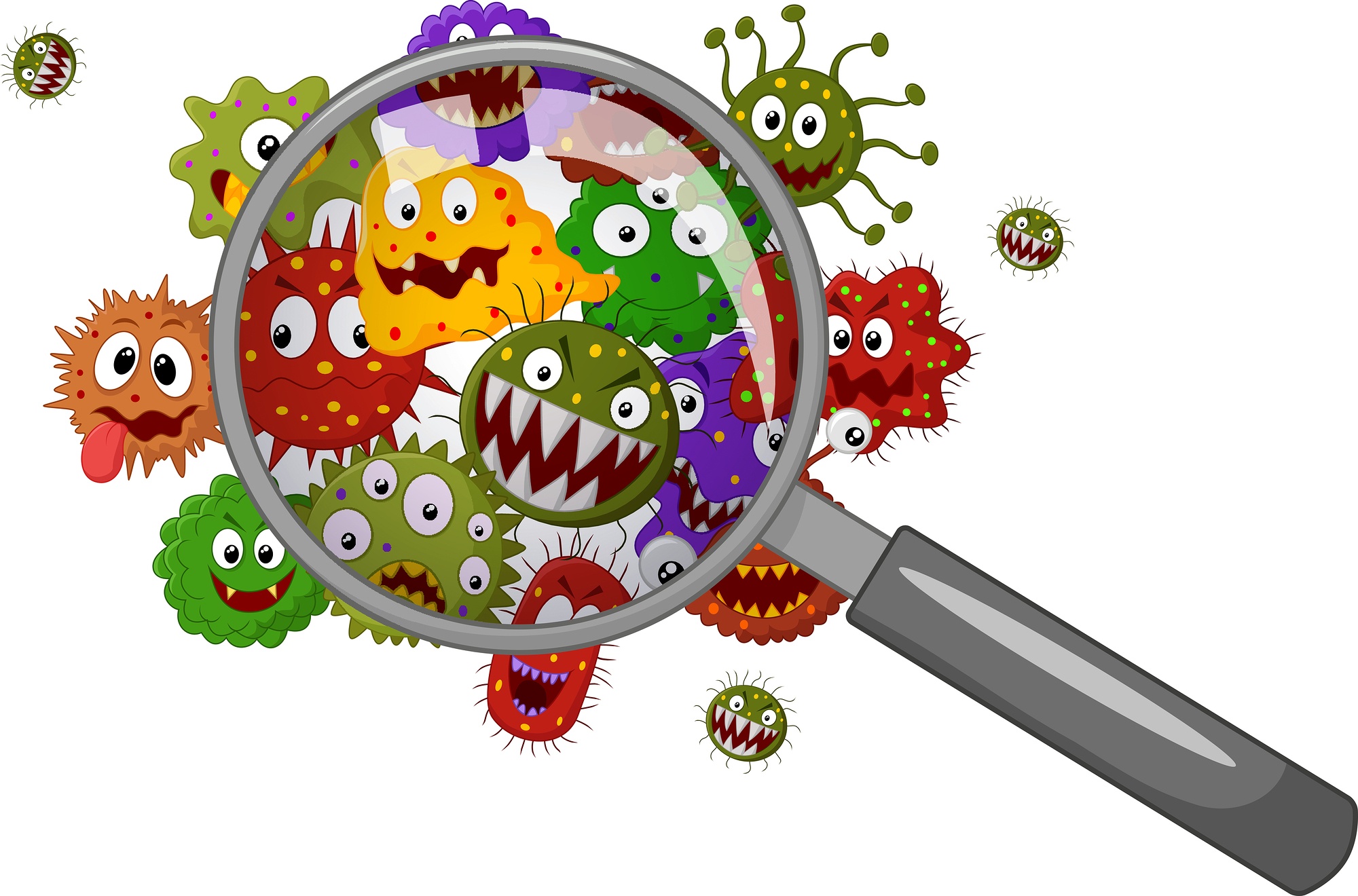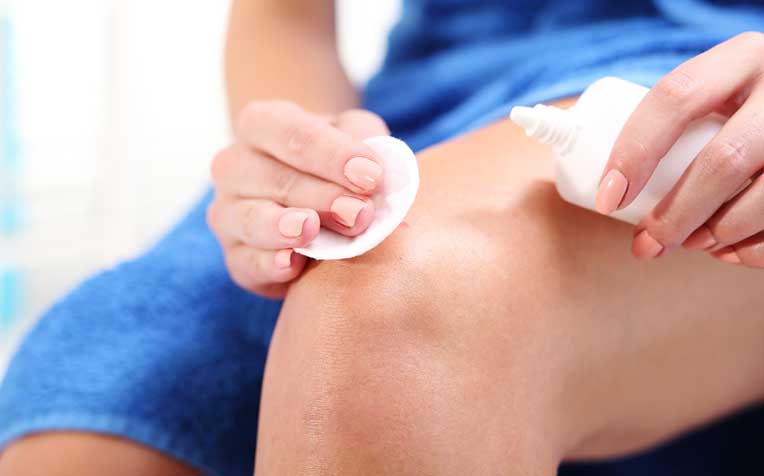
For centuries, honey has been traditionally used for its medicinal and nutritional properties. Honey contains a blend of sugar, trace enzymes, minerals, vitamins, and amino acids. This blend is quite unlike any other sweetener on the planet.
Read on to know about the amazing health benefits of honey!
Humans began hunting for honey about 8,000 years ago. As the years passed, it also found its place in Ayurveda and traditional Chinese medicine. Raw honey contains natural sugars (80%), water (18%), protein (2%), minerals, vitamins, and pollen. Honey has antiseptic and antibacterial properties. In fact, modern medical research also suggests using honey for managing chronic wounds and infections. Honey is popular due to its taste as well as its amazing health benefits.

Honey is a natural sweetener used by many as an alternative to white sugar. It contains about 69% glucose and fructose, which makes it a better sweetener for your overall health than normal white sugar. These natural fruit sugars are easily digestible and provide you with a natural boost of energy.
Did You Know?
– In the past, honey was used as a dressing for wounds and a first-aid treatment for burns and cuts.
– Honey lasts an incredibly long time.
– To make one pound of honey, honey bees must gather nectar from two million flowers.
Health Benefits of Honey
Most of the honey consumed today is processed. Unlike processed honey, raw honey provides incredible nutritional value. It can help with low energy, sleep disorders, allergies, skin infections, poor immunity, and even weight loss. Honey is one of the oldest traditional medicines that has been helpful in treating several human ailments.
Natural honey has anti-bacterial properties for many organisms, including Salmonella, Shigella, and Escherichia coli. For centuries, honey has been used to overcome liver, cardiovascular, and gastrointestinal problems. Research suggests that honey may possess anti-inflammatory activity and stimulate immune responses within a wound.Most of the honey consumed today is processed. Unlike processed honey, raw honey provides incredible nutritional value. It can help with low energy, sleep disorders, allergies, skin infections, poor immunity, and even weight loss. Honey is one of the oldest traditional medicines that has been helpful in treating several human ailments.
Natural honey has anti-bacterial properties for many organisms, including Salmonella, Shigella, and Escherichia coli. For centuries, honey has been used to overcome liver, cardiovascular, and gastrointestinal problems. Research suggests that honey may possess anti-inflammatory activity and stimulate immune responses within a wound.
Let us take a deeper look at the amazing health benefits of honey.
Strengthens Immune System
Honey is quite popular as one of the best immunity-boosting foods. It is a rich source of antioxidants and has anti-viral, anti-bacterial, and anti-fungal properties. This helps treat coughs and colds and fights other bacterial and viral infections. Buckwheat honey has the highest number of antioxidants and, when consumed daily, can be beneficial for boosting immunity.

Boosts Memory
Honey has numerous health benefits, one of which includes boosting memory and concentration. It not only increases your brain power and memory but also prevents metabolic stress and helps calm and soothe the brain. This helps augment memory in the long run. The natural antioxidants and therapeutic properties in honey help boost the brain's cholinergic system. It also helps improve circulation in the brain, protecting it against memory loss.

Know the relation between gut and brain health here!
Prevents Bacterial Infections
Honey demonstrates an inhibitory effect on around 60 species of bacteria. The antimicrobial effects of honey are mainly due to three properties. Firstly, honey draws moisture out of the bacteria, thereby dehydrating them. Secondly, the pH of honey is between 3.2 and 4.5, which is low enough to inhibit the growth of most microorganisms. Lastly, several phytochemical compounds with antibacterial activities are present in honey.

Fastens Wound Healing
Nearly all types of wounds, like burns, chill brains, burst abdominal wounds, cracked nipples, leprosy, sickle cell ulcers, septic wounds, surgical wounds, and wounds of the abdominal wall and perineum, are found to be responsive to honey therapy. On application to burns, it has an initial soothing and consequently rapid healing effect.

Honey also acts as a wound barrier against tumor implantation in laparoscopic oncological surgery. Additionally, honey dressing speeds up the healing process, sterilizes the vicinity of the wound, and reduces pain.
Maintains Gastrointestinal Health
Several studies show that oral administration of honey can treat and protect against gastrointestinal infections such as gastritis, duodenitis, and gastric ulceration occurring due to bacteria and rotavirus. In fact, the attachment of bacteria to mucosal epithelial cells acts as the initial event in the development of bacterial infections of the gastrointestinal tract. Honey protects against such infections by blocking the attachment of pathogenic microorganisms to the intestinal epithelium.
Fights Insomnia
Honey can be a great cure for your sleepless nights. Similar to other sugars, honey can cause a rise in insulin and release serotonin, a neurotransmitter that improves mood and happiness. It also contains several amino acids, including tryptophan. Tryptophan converts to form serotonin and then into melatonin, a hormone responsible for regulating sleep and wake cycles.

Nourishes Skin
Honey is the best natural moisturizer, especially for your dry skin and it is also very easy to apply. Raw honey not only unclogs pores but it also helps moisturize parched skin and cures cracked lips.

How to Incorporate Honey into your Diet?
You can include honey as a part of your daily diet in the following ways:
- One can eat honey directly.
- You can mix it with warm water, lime juice, cinnamon, and other herbs to make medicine.
- You can put it on bread like jam or spread.
- Simply add honey as a salad dressing.
- Additionally, you can add honey to your juice, tea, or any other beverage in place of sugar.
- You can also have honey and milk before bedtime and make it a ritual.
- You can consume honey with warm water on an empty stomach to increase metabolism and reduce weight.

Conclusion
Thus, a simple replacement of sugar with honey can work wonders for your health. Applauded by many for centuries, this natural sweetener will not just enhance your taste buds but will also boost your natural immune response. This will help you fight off pathogens and reduce the risk of diseases.
Disclaimer: Do not feed honey to infants below the age of 1 as it may cause botulism. Honey can also cause allergies in some people.
Nutritional Information
100g of honey provides 304 Calories, Carbs – 82g (Dietary Fiber – 0.2g, Sugar – 82g), Protein – 0.3g, Fat – 0g, Sodium – 4mg
And a percentage daily value of Vitamin A – 0%, Vitamin C – 1%, Iron – 2%, Calcium – 1% (based on a 2000-calorie diet).


.png)


